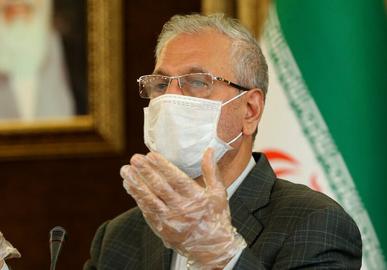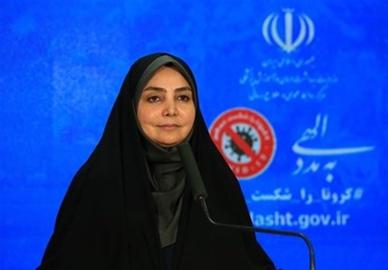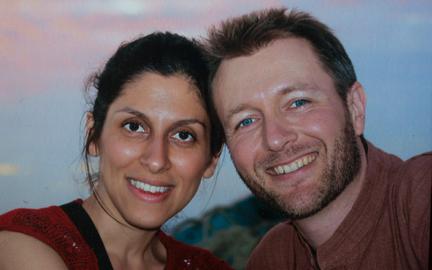A member of staff at a school is addressing a group of students, when suddenly, one of them staggers forward a few steps before falling to the ground. An 11-second video of this distressing event was posted on social media on September 7, feeding the already intense panic over the reopening of schools in Iran, and in particular the education ministry’s insistence that students must return to the classroom.
If it wasn’t panic people were feeling, it was confusion, which was aided by education minister Mohsen Haji-Mirzaee being summoned to parliament and then his ensuing U-turn. It was not mandatory for students to attend in person, he said in direct contradiction to his previous statements.
“Viral epidemics like influenza always start in schools and this is true of coronavirus as well,” said Dr. Payam Tabarsi, the head of the infectious diseases ward at the Tehran Masih Daneshvari Hospital, who said coronavirus infections would rise after schools reopened. “Therefore, gatherings in schools must not be allowed, to prevent children from transmitting this virus to other people.”
He predicted that children would be unlikely to be badly affected on the whole. “The teachers, the parents, the siblings and nurses — they are all at risk,” warned Dr. Tabarsi. “Even if the school follows health protocols the risk still exists because in hospitals where these protocols are observed to the letter nurses and doctors get infected by this virus. Of course, medical staff have no choice because it is their job, but for children, other arrangements must be made.” He also warned that if too many children needed to be hospitalized, there would not be enough hospital beds for them.
“The decision by the National Coronavirus Taskforce and the government to reopen schools [stated that] attending schools in person was not mandatory and that it is the duty of the government to provide students with an education,” said Ali Rabiei, the government’s spokesman, in his September 8 press conference. He also claimed that 86,000 schools in Iran had been connected to the internet and that teachers were entitled to use it for free.
This year, Arbaeen, the 40th day of Imam Hossein’s martyrdom in 680 AD, falls on October 7. On this day, many Shias traditionally travel to Iraq to mourn in Karbala, where Imam Hossein was killed, but the Iraqi government has repeatedly warned that it was not going to allow foreign pilgrims into the country. On September 7, Seif al-Badr, the spokesman for Iraq’s ministry of health, reiterated that the ban on foreign pilgrims remained in force.
A delegation from the Iranian embassy in Baghdad met with Nasif Jasem al-Khatabi, governor of Karbala, in a bid to negotiate, but al-Khatabi made it clear that Iraqi officials would not be changing their minds. “Considering the coronavirus and the possible consequences, the Iraqi government is not ready to accept pilgrims for Arbaeen,” he said.
Runoff Elections
Another event that will be affected by the pandemic is the forthcoming runoff elections for the parliament. They were originally scheduled for April 29 but were postponed because of the virus and are now scheduled for Friday, September 11. The first round of the elections for 290 representatives was held on February 21 in 208 precincts, a day after the coronavirus outbreak in Iran was officially announced. In 11 precincts, the results were not final. The second round of the elections will be held in 24 counties in nine provinces.
Amid reports that a Russian coronavirus vaccine could be on the market by the week beginning September 14, Iran continued to claim that it was continuing its efforts to develop its own vaccine. Dr. Alireza Biglari, president of Iran’s Pasteur Institute, said that a number of Iranian companies had completed the animal testing phase, necessary to the development of any vaccine, and the results were being assessed. In the first phase of testing on humans, he said, the vaccine was only being tested “on a few people to make sure that it is not dangerous and is relatively effective. In the second phase, it is tested on more people, meaning between 100 and 200. In the third phase it might be tested on between 30,000 and 40,000 volunteers and results would decide whether the vaccine is effective and safe.”
Until such time that a vaccine becomes available, however, coronavirus infections and fatalities across Iran continue. Dr. Mohammad Hossein Sumi, president of Tabriz University of Medical Sciences, reported that, following a month and a half of a second wave of coronavirus in East Azerbaijan, the number of infections in the province is rising again. According to him, currently an average of 40 percent of coronavirus tests in the province are positive. “Until September 3, the rate of coronavirus infections in East Azerbaijan was normal but, since then, the rate has been gradually going up,” he reported. “And now the rate of mortalities among women is getting close to that of men in the province, whereas, in the past, fatalities among men were twice that of women.” He said that currently 700 Covid-19 patients had been hospitalized across the province.
In her daily briefing for September 8, the health ministry spokeswoman Dr. Sima Sadat Lari said that currently 13 provinces are in a red state of alert and 15 provinces are in an orange state.
- Red: Tehran, Mazandaran, Gilan, Qom, Isfahan, Razavi Khorasan, East Azerbaijan, Kerman, North Khorasan, Semnan, Yazd, Zanjan and Qazvin
- Orange: West Azerbaijan, Alborz, Fars, Lorestan, Hormozgan, Ardebil, Bushehr, Kermanshah, Kohgiluyeh and Boyer Ahmad, South Khorasan, Markazi, Ilam, Chaharmahal and Bakhtiari, Golestan and Khuzestan
Dr. Lari also announced the official coronavirus statistics for the last 24 hours:
- New confirmed coronavirus cases: 2,302
- Total cases since the outbreak: 391,112
- New hospitalizations: 1,226
- Total Covid-19 patients in ICUs: 3,713
- Total coronavirus tests conducted in Iran: 3,431,646
- Total recovered from coronavirus or released from the hospital: 337,414
- New fatalities: 132
- Total death toll since the outbreak: 22,542
This is part of IranWire's coronavirus chronology. Read the full chronology
visit the accountability section
In this section of Iran Wire, you can contact the officials and launch your campaign for various problems



























comments